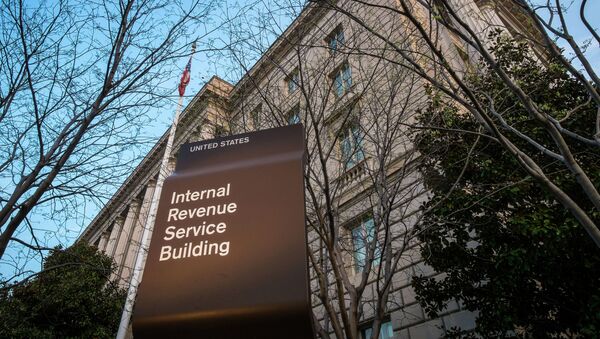WASHINGTON (Sputnik) — US taxpayers are using a number of schemes to reduce their taxable income for the 2015 filing season, according to the "Dirty Dozen" list of tax scams released by Internal Revenue System (IRS).
“Scam artists don't miss a trick and they can entice taxpayers to falsely inflate income on returns to claim tax credits they are not entitled to receive," IRS Commissioner John Koskinen was quoted as saying in the statement on Wednesday. "Taxpayers are ultimately responsible for the information on their tax returns, and I urge everyone to file the most accurate return possible."
Filing fake documents to hide income again on the #IRS “Dirty Dozen” List of #tax Scams in 2015. http://t.co/oLoa36iZbh
— IRS (@IRSnews) 3 февраля 2015
Types of tax scams include abusive tax shelters, filing fake documents to hide income, and the latest being falsifying income to claim tax credits, according to the statements, released this week.
Abusive tax schemes have turned from simple financial maneuvering into sophisticated strategizing with financial secrecy laws of some foreign jurisdictions and the availability of credit and debit cards issued from offshore financial institutions, the statements noted. Scofflaws used self-prepared, "self-corrected," or otherwise absurd forms that incorrectly report taxable income as zero, IRS statements read.
Fake charities on the #IRS “Dirty Dozen” list of #tax scams for 2015 http://t.co/0w9bQ2zfrP
— IRS (@IRSnews) 4 февраля 2015
For those who plan on falsifying income to claim tax credits they don’t qualify for, some people increase the income they report to the IRS, so they can qualify for certain tax credits that would not have benefited them otherwise, the statements said. It can involve inflating one’s income or including income that was never earned, either as a wage or self-employment income, IRS said.
Significant penalties, interest, and criminal prosecution can be the endgame for illegal scammers everywhere, according to the statements.
IRS Criminal Investigation and the Department of Justice work in tandem to find those trying to cheat the law, according to the IRS.




